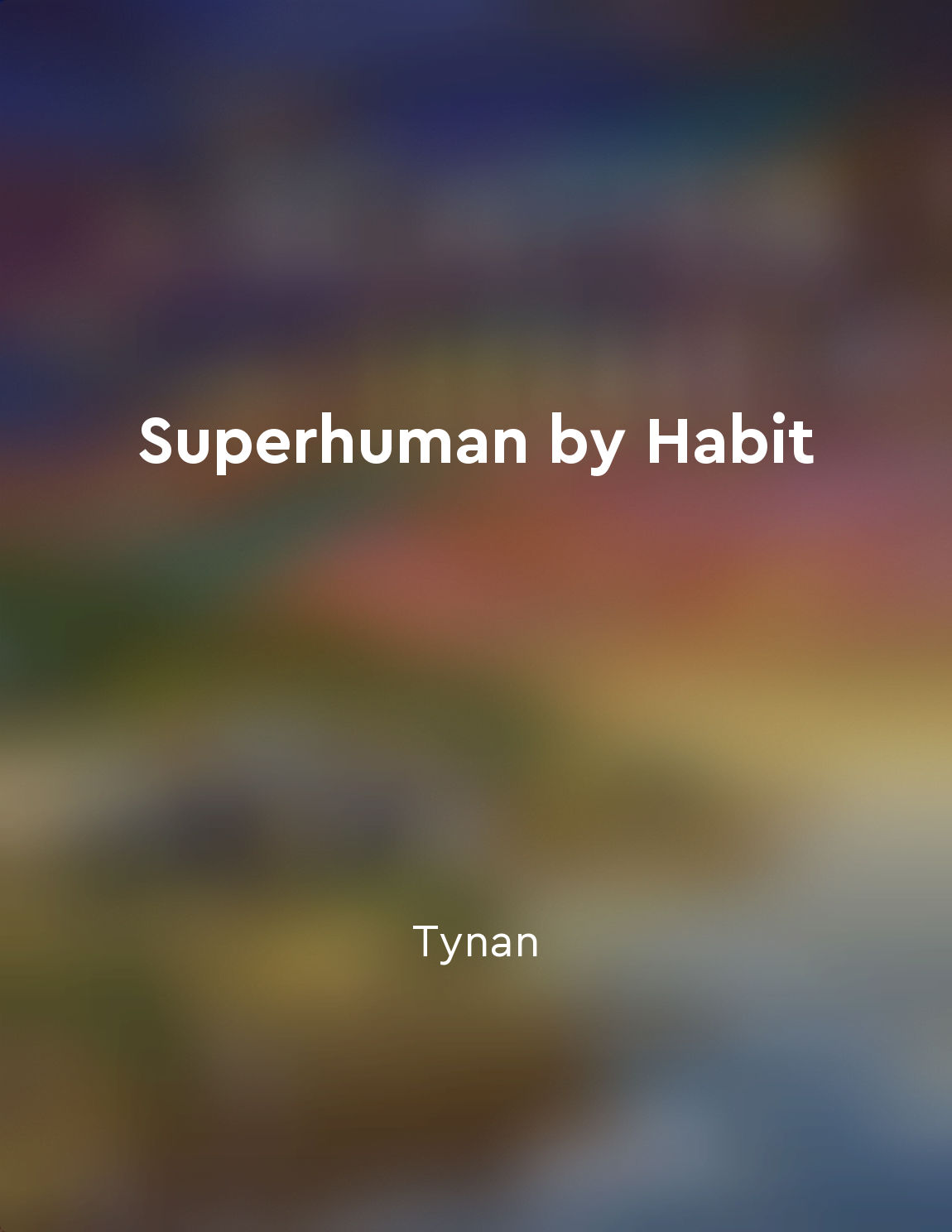Audio available in app
Changing habits requires identifying and addressing triggers from "summary" of The Power of Habit: by Charles Duhigg | Summary & Analysis by Elite Summaries
Identifying and addressing triggers is a crucial step in changing habits. Triggers are the cues that set off a habit loop, consisting of a cue, a routine, and a reward. By understanding what triggers a habit, we can begin to make changes that will help us break free from the cycle. For example, if you have a habit of snacking late at night, you might realize that the trigger is feeling stressed or bored. By identifying this trigger, you can then work on finding a new routine to replace the unhealthy habit. Once we have identified our triggers, we can begin to address them in a proactive manner. This may involve changing our environment to remove triggers that lead to unhealthy habits. For instance, if you find that you always eat junk food while watching TV, you can choose to watch TV in a different room where there are no snacks available. By addressing triggers in this way, we can make it easier for ourselves to adopt new, healthier habits. In some cases, triggers may be more subtle and difficult to identify. In these situations, it can be helpful to keep a journal or log of our habits to better understand what is causing us to engage in certain behaviors. By tracking our habits in this way, we can start to see patterns and identify triggers that we may not have been aware of before. It's important to note that changing habits is not always easy, and it may take time and effort to break free from ingrained patterns. However, by taking the time to identify and address triggers, we can set ourselves up for success in creating lasting change. By being mindful of our habits and the triggers that set them off, we can begin to take control of our behavior and make positive changes in our lives.Similar Posts
Small wins can lead to bigger successes
The idea that small wins can pave the way for larger victories is a central theme in the book "The Power of Habit: by Charles D...

Acknowledge setbacks and learn from them
When setbacks happen, it's easy to get discouraged and frustrated. It's tempting to sweep them under the rug and pretend they n...
Institutional habits can be changed by identifying key personnel
Institutional habits can be changed by identifying key personnel within an organization. These key personnel are often referred...
Living in the present
To truly live in the present means to be fully engaged and immersed in the moment at hand, without being distracted by thoughts...
Habits consist of cue, routine, and reward
Habits are made up of three components: cue, routine, and reward. The cue triggers the habit. It could be a certain time of day...
Setting boundaries with others is crucial for protecting your time and energy
Establishing clear boundaries with others is essential if you want to safeguard your time and energy. Without boundaries, you m...
Changing habits requires identifying and addressing triggers
Identifying and addressing triggers is a crucial step in changing habits. Triggers are the cues that set off a habit loop, cons...
Make habits satisfying and rewarding to maintain motivation
To maintain motivation, it is essential to make habits rewarding and satisfying. When habits are associated with positive outco...
Focus on systems over goals
When most people set a goal, they rely on willpower to achieve it. They think that if they just try hard enough, they will even...
Emotions influence our decisions
Our decisions, whether big or small, are often driven by our emotions. The way we feel in a particular moment can heavily influ...
